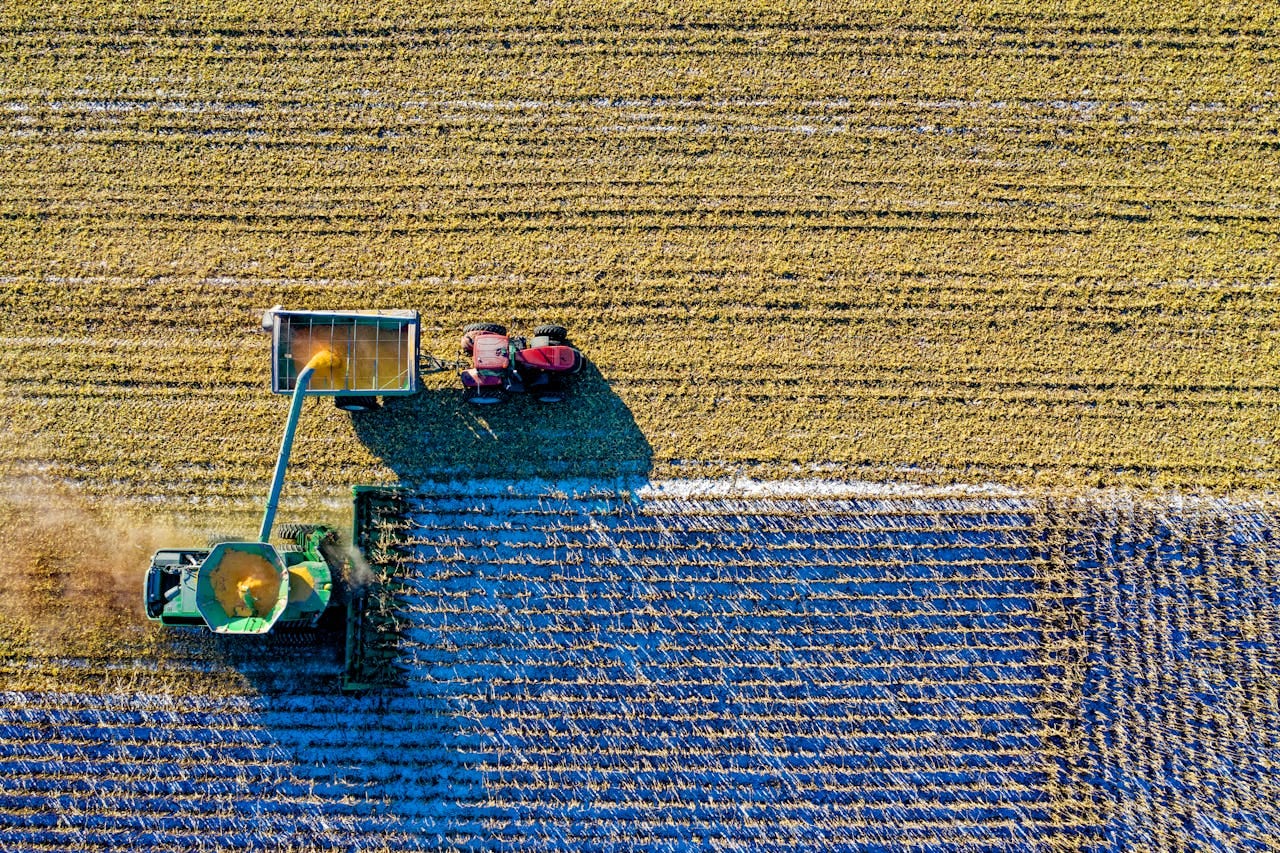Market Signals
$5.7 trillion in annual costs saved: A new report on financing for regenerative agriculture found that closing the current financing gap in regenerative agriculture would save $5.7 trillion in damages done to people and the planet.
$29.9 billion: The global regenerative agriculture market size was valued at $16.1 billion in 2024 and is expected to reach $29.9 billion by 2034.
60% less capital raised: From 2022 to 2023, according to Allocate’s “Venture Capital State of the Union,” there was a 60% decline in both capital raised and the number of funds across all of venture capital (Venture funding into early stage food and ag dropped by 48%).
From the Trail
Across the full capital stack, there is more money flowing into food and agriculture than ever before. The graph below shows the meteoric growth in the number of funds specializing in food and ag.
As we discussed in our last edition of The GuidePost, there are a number of secular trends—growing consumer awareness, technological advancements, policy tailwinds, and wider adoption of regenerative agriculture—that are mutually reinforcing to accelerate the transition of the global food system. More capital will serve as a force multiplier of these trends. The future is bright.
And yet, simply more capital won’t be enough. A new report released by The Rockefeller Foundation last month examined the financial mechanisms and tools that will propel the transition to regenerative agriculture.
The report found that the bigger issue is bankability, not just a lack of capital. In fact, the amount of agricultural credit available globally exceeds the estimated need to transition to regenerative agriculture. Increased capital deployment is held back by a bankability gap. “Mass adoption of regenerative practices begins with building a strong ecosystem of operating loan products that align financial terms with incentives for practice adoption,” the report noted.
This is why we’ve invested in companies like Fractal, Mad Capital, and CamoAg.
Fractal provides growth capital to farmers and helps them unlock equity in their existing land with an impact investment fund focused on transforming agriculture through farmer partnerships and regenerative practices
Mad Capital provides financing for regenerative agriculture and organic farmers.
CamoAg improves bankability by helping ag lenders better assess applicants and necessary loan parameters for their existing portfolio and risk exposure.
We’re just getting started. Underpinning the transition to regenerative agriculture is not just more capital in absolute dollar amounts, but creative financing mechanisms, new credit facilities, and approaches that align financial incentives and unlock capital.
Founder Fundamentals
Getting the team to row in the same direction: Since COVID, Brian Chesky, the co-founder and CEO of Airbnb, has fundamentally changed how his company operates. How? 1) He went to war against competing priorities. Too many teams were juggling competing priorities, so he cut anything that wasn’t necessary. One team used to have five priorities. Now, he directed five teams to collectively focus on one. 2) He dove back into the details. He believes that too many founders delegate and get out of the way too quickly. There’s a difference between micromanaging someone and caring about the details, and the best founders stay deeply involved. 3) He challenged his teams to “add a zero” and think 10x bigger. The shift in order of magnitude spurred new thinking and new approaches to problem solving. Lenny’s Podcast (73 minutes).
What We’re Reading
The promise of precision agriculture: Precision agriculture has promised a transformation in farming since the 1990s. It’s finally starting to deliver. Undark (7 minutes)
The scientific approach to venture capital fundraising: In May we highlighted the scientific approach to company building. Now we’re featuring an article on the scientific approach to venture capital fundraising. NfX (10 minutes)
Why carbon ratings are only part of the regenerative agriculture story: Regenerative agriculture is a process, not a status. It requires measuring a multitude of outcomes. Sustainable Views (6 minutes)
How CSAs took root in the US. Community-supported agriculture programs boomed during the pandemic, but the seeds were cultivated decades beforehand. Dwell (5 minutes)
Portfolio Updates
Trailhead Capital has three new portfolio companies: Avalo (AI-powered crop development), Edacious (transparency-based food verification system), and Soiltech (tech that closes the gap in crop production and traceability).
HowGood achieved certification from the Carbon Trust for its Carbon Footprint Model and was recognized by Fast Company for its organic impact tracker as a World Changing Idea.
Clean Crop Technologies launched a commercial cold plasma seed treatment facility, signed $3.4 million in purchase orders, and has a sales and pilot pipeline worth $47 million in annual recurring revenue.
Local Line acquired Anjoy to accelerate farm-to-grocery sales in Michigan.
Join us in New York
Meet us in New York in September. We're hosting our Annual General Meeting at Stone Barns Center for Food & Agriculture on September 24th, and we'll be hosting a few events during Climate Week (September 23, 25, or 26).
Please reach out to Andrew Keesee if you'd like to learn more about joining us at Stone Barns and/or our Climate Week events.




